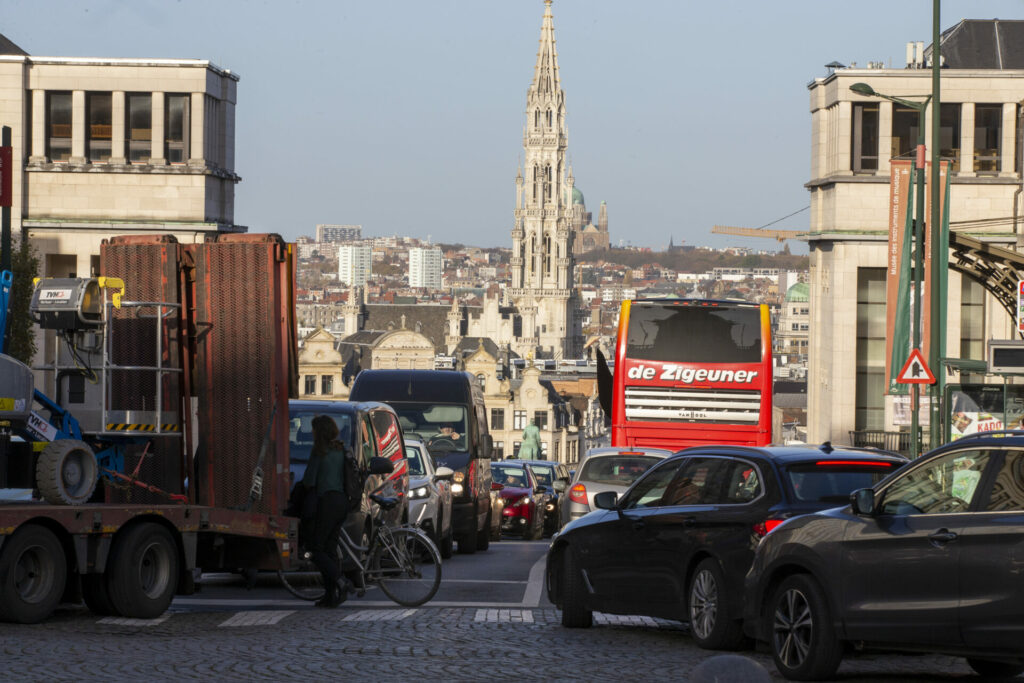Brussels has been named the city with the 14th worst traffic in the world and the 7th worst in Europe — news that will likely come as little surprise to Belgians who are becoming increasingly frustrated by the city's famously snarled traffic.
According to the most recent TomTom Index, it took an average of 25 minutes and 30 seconds to travel 10 kilometres by car in Belgium's capital city last year: a 50-second increase compared to 2021, and almost 11 minutes more than in Antwerp (14 minutes and 40 seconds), Belgium's second most congested city. Liège was deemed the Belgian city with the third worst traffic (14 minutes and 20 seconds).
London was named the city with (by far) the world's worst traffic: it takes 36 minutes and 20 seconds to traverse 10 kilometres in the British capital — 7 minutes and 10 seconds more than second-placed Bengaluru. Dublin was ranked the world's third-most congested city (28 minutes and 30 seconds).
Of the 389 ranked cities, Almere, a city in the Netherlands, was deemed the least congested (8 minutes and 20 seconds).
A heavy price
Although the amount of time wasted in traffic jams is certainly significant — Brussels dwellers spent almost four full days (91 hours) stuck in traffic last year — it is not only in temporal terms that the impact of traffic jams can be measured.
According to figures recently released by the Federation of Belgian Companies (La Fédération des entreprises de Belgique) and reported on by La Dernière Heure, Belgium lost up to €4.8 billion in economic output last year due to traffic jams.
Related News
- More and more physical aggression between drivers, says Belgian traffic institute
- Traffic jams in Flanders up 27% since pandemic
Moreover, according to the TomTom study, the average Brussels motorist emitted 202 kg of CO2 while stuck in jams last year — emissions which can quite literally be lethal.
"Traffic congestion increases vehicle emissions and degrades ambient air quality, and recent studies have shown excess morbidity and mortality for drivers, commuters and individuals living near major roadways," a recent National Institutes of Health study noted. "Health risks from congestion are potentially significant, and... additional traffic can significantly increase risks, depending on the type of road and other factors."
Furthermore, traffic congestion is a significant contributor to global warming: another recent study noted the "major role played by congestion towards increasing [fossil] fuel use and emission levels".

